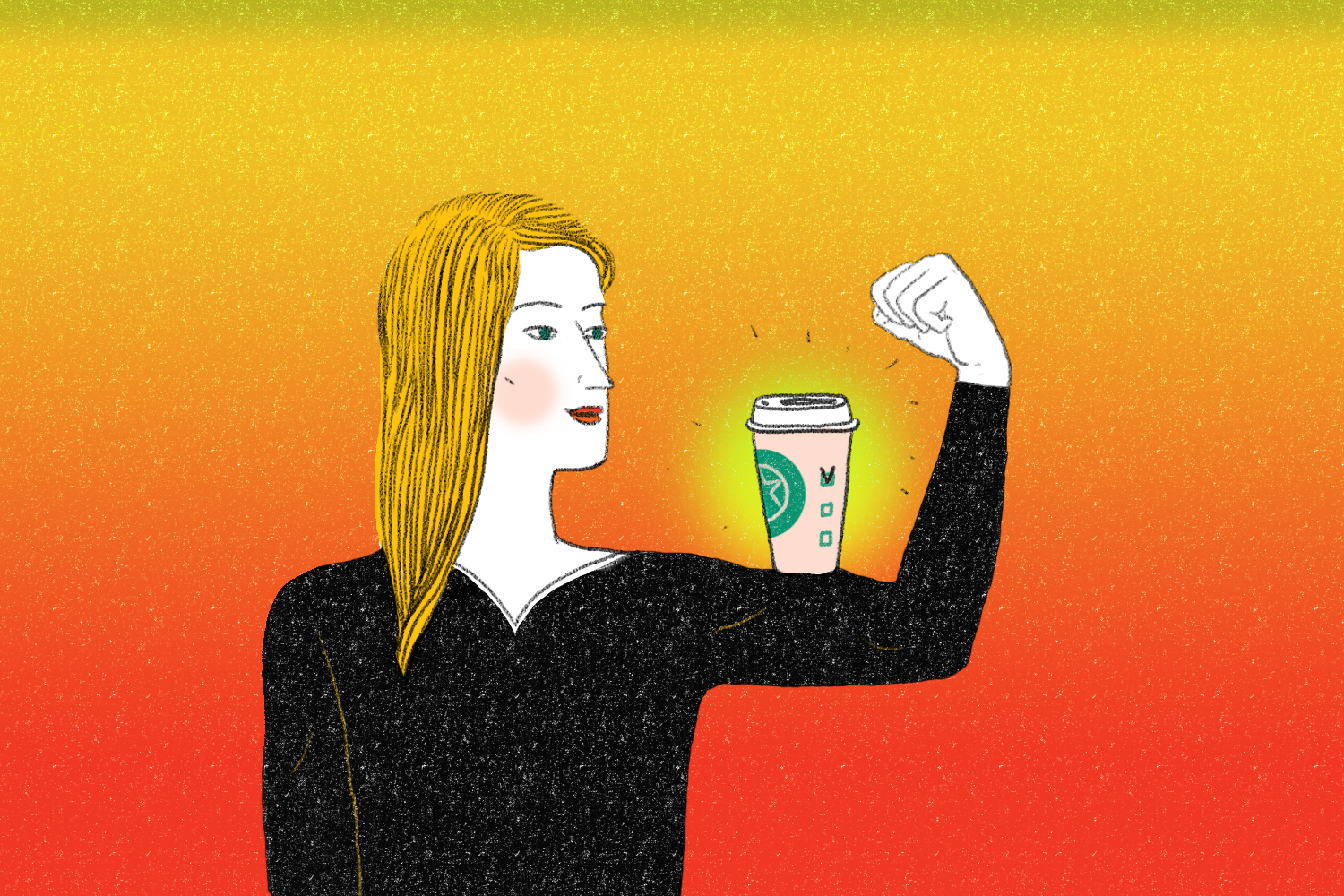
“I gave up coffee” is a refrain of the health conscious. But should it be? The idea that coffee is a dangerous, addictive stimulant springs mostly from 1970s- and 1980s-era studies that tied the drink to higher rates of cancer and heart disease, explains Dr. Rob van Dam, a disease and nutrition expert at Harvard School of Public Health who has examined coffee and its health effects. According to van Dam, that old research didn’t do a great job of adjusting for a person’s cigarette habit or other unhealthy behaviors.
But newer, better-designed research paints a more benign picture of your favorite eye-opener. Van Dam and his colleagues analyzed health and diet data on roughly 130,000 adults spanning 24 years. They found no evidence that drinking coffee increases your risk of death from cancer, cardiovascular disease, or other causes. That was true even for people who knocked back 48-ounces of coffee a day. In fact, there was some indication that regular coffee drinkers might enjoy a slight drop in mortality risk, van Dam says.
The idea that your java could actually deserve a health halo would have shocked doctors a few decades ago. But van Dam’s study is only one in a wave of new research sure to please coffee fans. Coffee has been linked to lower rates of type-2 diabetes, a reduced risk for some cancers and protection against Parkinson’s disease. Other research links coffee to improved memory, mood and energy levels. One recent analysis published in the journal Science even found that coffee is linked to the diversity of bacteria in a gut (which is likely a good thing).
The drink could even help shield you from a deadly form of skin cancer. How? The caffeine in coffee may interact with a type of “repair gene” that plays a role in the development of basal cell carcinoma, says Dr. Jiali Han, a disease researcher at Indiana University, Indianapolis, who coauthored the coffee-and-skin cancer study. Han says it’s also possible that coffee’s antioxidant compounds could account for the drink’s anti-cancer benefits—an explanation you’ll come across a lot when reading about coffee’s benefits.
You Asked: Your Top 10 Health Questions Answered










But before you start swigging your java by the gallon, van Dam warns that there remain reasons to be careful. There’s evidence that pregnant women might want to limit morning caffeine fix because of an admittedly small correlation between coffee intake and miscarriage. (There is research showing that moderate coffee drinking is perfectly safe, making it a judgment call for expecting moms.) There are also reports hinting that people with cholesterol issues may have more problems if they drink some kinds of coffee. Compounds called cafestol, present in coffee beans, appear to raise LDL cholesterol—though paper filters eliminate most of those compound, making it more of a concern with French press and espresso-style brews. Of course, if you’re drinking so much that you’re unable to sleep or your heart races, that’s a bad thing too, van Dam adds.
You may not want to drink it too hot, either. The World Health Organization issued a recent report finding that hot beverages—including coffee, as well as tea, mate and even hot water—are linked to a higher risk of cancer of the esophagus. (Drink it at a temperature below 149F, and you’re likely safe.)
But if you’re in good shape and enjoy coffee? “For most people,” van Dam says, “black coffee is a healthy, non-caloric beverage choice.” And it should go without saying that the benefits conferred to coffee do not extend to mocha-flavored “coffee drinks” or other sugar-loaded concoctions.
“Coffee is a highly complex beverage with hundreds of compounds,” van Dam says, which means it affects people differently. Van Dam doesn’t recommend people who don’t already drink the stuff start now, but if you love it, can tolerate it, and it isn’t messing with your sleep? Bottoms up.
More Must-Reads from TIME
- Cybersecurity Experts Are Sounding the Alarm on DOGE
- Meet the 2025 Women of the Year
- The Harsh Truth About Disability Inclusion
- Why Do More Young Adults Have Cancer?
- Colman Domingo Leads With Radical Love
- How to Get Better at Doing Things Alone
- Michelle Zauner Stares Down the Darkness
Contact us at letters@time.com